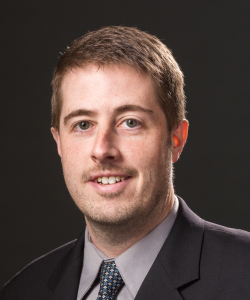
YOU ARE BOUVÉ

The Department of Public Health and Health Sciences provides a world-class education in a broad range of public health and clinical careers that promote the health and well-being of individuals, communities, and populations in culturally diverse contexts. We also train the next generation of clinicians by providing a strong foundation in health science, along with comprehensive pre-med and pre-health advising.
We are committed to evidence-based research and research translation to eliminate health disparities. Our department is a unique, transdisciplinary setting that incorporates teaching, learning, and serving, in a rapidly evolving, multicultural environment.
Our comprehensive degree programs provide students the resources they need to become medical professionals through application guidance, workshops and presentations, course mapping and more. Prepare yourself for PreMed/PreHealth with the Bouvé experience.



Northeastern University’s department of public health and health sciences is connected to a rich cluster of evidence-based learning institutes and centers.
Students have the opportunity to gain hands-on learning through a number of health science focused institutes.

Dr. Leeman is an experimental psychologist with a public health focus. He has leadership roles in several national and international professional societies and is chair of the Health Science department at Northeastern University.
Faculty Spotlight
Our mission in the Department of Public Health and Health Sciences is to educate the next generation of leaders in public health and clinical health professions; to conduct cutting-edge research on causes of negative health outcomes and ways to prevent them; and to contribute to our communities locally, nationally, and globally.
Our undergraduate major in Health Sciences is among the most popular at Northeastern and our major in Public Health is an outstanding option for students with an interest in sociocultural factors shaping health, public health policy or administration. Undergraduates in our majors learn hands-on through exciting co-op placements, mostly in the Greater Boston area – a hub of public health and clinical activity.
Our Master of Public Health (MPH) and other master’s programs share a commitment to experiential learning and offer unmatched levels of interaction between students and expert faculty. The Population Health PhD program offers close faculty mentorship and has an enviable track record of placement of students into faculty positions at top universities. The innovative PhD program in Personal Health Informatics, conducted jointly with the Khoury College of Computer Sciences, is a model of interdisciplinary education.
Though our faculty have a variety of backgrounds and foci, a passion for advancing health equity is a strong, unifying factor that permeates our research, teaching, and community involvement. These efforts take on many forms, including the activities of our Social Justice Steering Committee; efforts to advance LGBTQ+ health; and to mitigate negative impacts of racism and other prejudices.
I believe the more you learn about our department, the more excited you will become about what our faculty, staff and students have accomplished, but even more so about what can be accomplished in the future.
Upon satisfactory completion of the Public Health Program, graduates should be able to:
Upon satisfactory completion of the Health Sciences Program, Graduates should be able to:
In additional to general education purpose, the Exercise Science Master’s Program seeks to assist students in meeting the following learning goals with associated student learning outcomes:
The MPH Program in Urban Health has identified the following core public health and urban health competencies, which guide all program activities:
The MPH Program has one area of specialization, which is “Urban Health”. The specific competencies selected for this specialization mirror the general competencies the guide the entire program and have been amended to take into account the health of urban populations:
All graduates fulfill the competencies that guide the MPH Program.
After completion of the Health Informatics MS program, graduates will be able to:
After completion of the Population Health PhD program, graduates will be able to:
Department of Public Health and Health Sciences
360 Huntington Ave
316 Robinson Hall
Boston, MA 02115
617-373-3666
Health Sciences Majors
Steve Zoloth, PhD, MPH
617-373-5925
[email protected]
MPH & MPH Dual Degree Programs
Neil Maniar, PhD, MPH
617-373-5925
[email protected]
Exercise Science MS Program
Rui Li, PhD, MS
617-373-5925
[email protected]
Population Health PhD
Beth Molnar, ScD, SM
617-373-5925
[email protected]